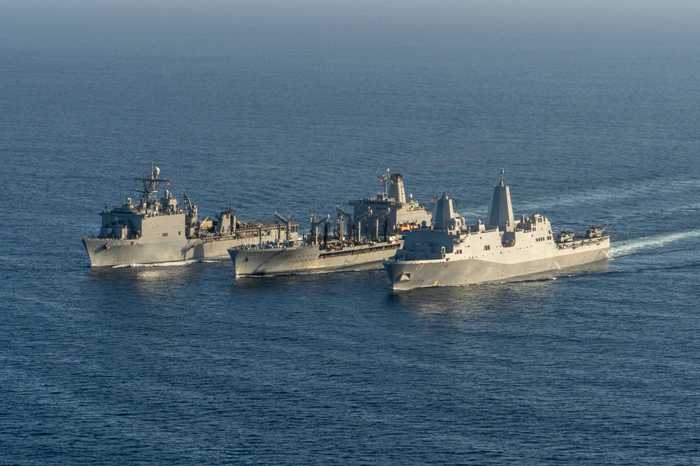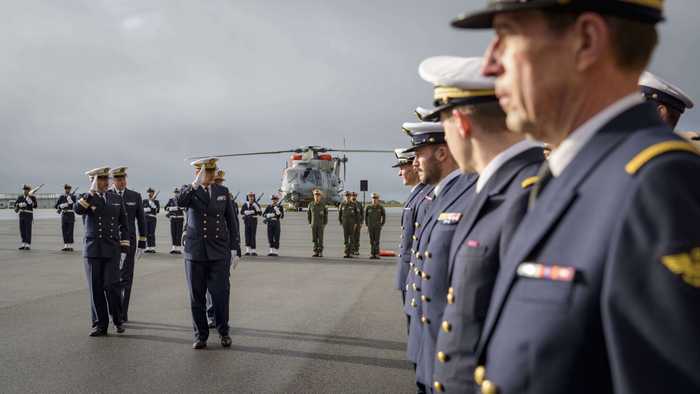Published 18:55 IST, December 26th 2023
Operation Prosperity Guardian tussles with internal strife amid Spain, Italy, and France’s conundrum
Operation Prosperity Guardian grapples with coalition strains as key NATO allies resist U.S. command, coupled with evolving threats in distant waters.
- Defence
- 3 min read

Amid the formation of Operation Prosperity Guardian, a multinational coalition led by the U.S. to safeguard key maritime routes, significant challenges emerge. As Spain, Italy, and France resist placing their vessels under U.S. command, the coalition's unity falters, jeopardizing its effectiveness.
The reluctance of key NATO allies to fully commit their resources under U.S. Navy command presents a critical setback for the coalition. Spain's preference for NATO or EU-led operations, Italy's independent deployment, and France's conditional participation underscore the intricate diplomatic maneuvers required to manage a diverse and resource-intensive coalition.
Expanding threats beyond Yemen
Recent events indicate a troubling shift in the threat landscape, challenging the geographical boundaries of Houthi attacks. A drone strike on a chemical tanker in the Indian Ocean, far from Yemen's shores, suggests an escalation in Houthi capabilities or the involvement of external actors. The attack, approximately 1,200 miles from Veraval, raises questions about the origin and sophistication of the weaponry employed.

Operation Prosperity Guardian faces a critical test as it grapples with internal dissent and an evolving threat scenario. The coalition's ability to navigate diplomatic complexities and adapt its strategy will be pivotal in ensuring the security of vital maritime routes.
The participation of twenty countries in the coalition comes with a caveat—many prefer to remain anonymous, contributing minimal assets. The refusal of key allies to place their vessels under U.S. Navy command highlights the complexity of orchestrating a multinational effort. With only a fraction of participating nations supplying major assets, the operation's resource-intensive nature poses a significant hurdle.
Meanwhile, A drone strike on a commercial vessel in the Indian Ocean, strikingly distant from Yemen's coast, marks a significant departure from previous localized attacks. The incident, targeting a tanker with ties to Israel, suggests an expansion of Houthi capabilities or external involvement. The geographical shift in attacks, approximately 1,200 miles from Veraval, prompts concerns about the evolving nature of the maritime threat.
Strains in coalition dynamics
As Operation Prosperity Guardian faces challenges both within its coalition and from an increasingly sophisticated adversary, the need for a comprehensive and adaptable strategy becomes evident. Navigating diplomatic intricacies and proactively addressing the evolving threat landscape will be crucial for the operation's success.

The reluctance of key NATO members, Spain, Italy, and France, to fall under U.S. Navy command reveals strains in coalition dynamics. Spain's insistence on NATO or EU-led operations, Italy's independent deployment choice, and France's conditional participation underscore the challenges of uniting nations with diverse interests. The success of the operation hinges on resolving these internal dissentions to ensure a cohesive and effective response.
The recent drone strike on a commercial vessel prompts speculation about Iran's potential involvement in escalating maritime attacks. The attack, approximately 1,200 miles from Veraval, aligns with Iran's history of engaging in anti-shipping activities, particularly against Israel. If confirmed, Iran's direct or proxy participation in expanding maritime threats poses a significant escalation, complicating efforts to secure vital sea lanes.
Operation Prosperity Guardian confronts a dual challenge—internal discord within the coalition and an increasingly complex threat environment. The ability to address diplomatic tensions and proactively counter evolving threats will determine the operation's success in securing key maritime routes.
Updated 18:55 IST, December 26th 2023